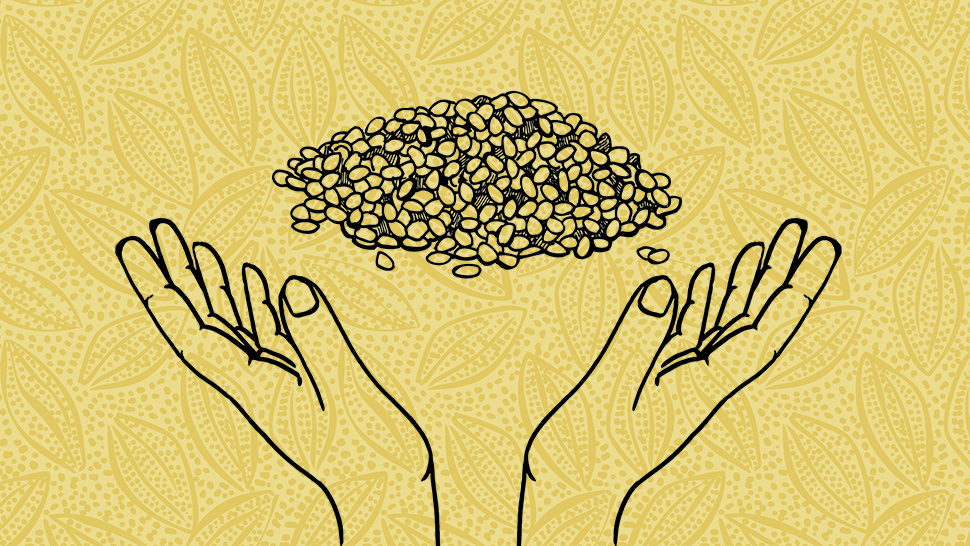
Every November, Bon Appétit Management Company takes the time to reflect on the rich cultural heritage of Native Americans, whose deep ties to the land have cultivated traditional knowledge systems over centuries. Indigenous farming practices are an essential part of the cumulative wisdom that has been passed down over generations. These agricultural customs not only ensure the survival of important crops, but a connection to rituals, food traditions, ancestors, and the surrounding ecosystem.
Seed saving is one of the important ways that Indigenous communities have carried on important food traditions. The practice involves harvesting and preserving seeds from the current harvest to shape and allow for future plantings. Humans have long been co-evolving with their food crops by saving seeds with more desirable traits: for instance, selecting for the longest ears of corn, the juiciest kernels, and the most vibrant colors.
Unfortunately, the commercialization of seed production and industrialization of the food system has strained the relationship between Native American communities and their sacred seeds. Crop biodiversity has plummeted in recent decades now that seeds are selected for uniformity and transportability, and seed patents controlled by massive agribusinesses have limited the ability of farmers and community members to control or save their own seeds.
Saving seeds represents more than just the preparation for next year’s harvest: seeds are an emblem of cultural heritage, survival, and autonomy. Seed sovereignty, or the ability of Indigenous communities to save, exchange, and control their own seeds, ensures that they will continue to thrive by preserving their food systems and traditions that have passed down through generations.
Join us as we honor Indigenous farming practices this Native American Heritage Month, from seed saving to planting the Three Sisters, which help build resilient, autonomous food systems to preserve the sacred past and prepare for a bright future.